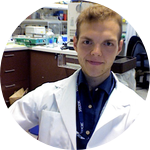About This Project
Depression is not a choice, but we can choose to do something about it. Depression is a single label used to represent mental problems with a wide diversity of distinct biological roots. The challenge of discovering and understanding the true roots of depression is complex but critical if we hope to end the suffering that millions still face daily. We are developing an infrastructure to collect, organize and interpret data in a way that can be accessed and analyzed by scientists (including citizen scientists) and researchers across the globe.Ask the Scientists
Join The DiscussionWhat is the context of this research?
The primary causes of depression are inherited but despite decades of searching, most biological roots remain undiscovered. One primary and widely recognized obstacle to finding them is that there are many and varied types of depression, which greatly complicates the identification of causes. To remedy this situation, we are developing a system to partition depressed people into groupings determined by underlying biology, to characterize their genomes and other biology, and to allow free access to all of the aggregated data so that data analysts worldwide have unfettered access in order to reveal the biological roots of these different classes of depression.
Main Goals
- Develop a mood-, activity-, & medication-tracking application (app) to collect key information from participants in the Personal Genome Project (PGP) at Harvard Medical School--the severely and chronically depressed to the non-depressed.
- Collect information over time and aggregate it together with genome sequences and other data for each participant.
- Package the information in computable form, for massively parallel analysis through crowdsourcing.
The PGP has been a major advance in participatory research by crowdsourcing thousands of people on the front end of the project--on the participant side. Now, this project will take this research model to the next level by further enriching participant contributions and by creating a framework for crowdsourcing analysis of the data. This approach has worked spectacularly well, including a recent major success in genome analysis by our colleagues at Harvard Medical School and their crowdsourcing collaborators at TopCoder [1].
How it Works:
Getting the DataUsers will be prompted to record a range of information, including assessments of mood based largely on the World Mental Health Composite International Diagnostic Interview (CIDI) used by the World Health Organization, but adapted for routine use "On a scale from 1 to 10, how would you rate your mood right now?", "If you are feeling down right now, do you feel like nothing could cheer you up?"). The user will also be able to record daily events such as medication tracking ("Did you take your medications today?") , as well as make one-time or occasional reports for other key information types ("What medications have you tried that did not help you feel better?").
Open Analysis, Open Solutions
The structures of and responses to the data reported through the app's surveys together with medication responses, genome sequence data, and other information, will provide an increasingly rich resource for analysis. The participant data will be made available online, and we and other researchers will create frameworks for crowdsourced analysis to discover underlying structure and patterns in the data, revealing biological meaning and paving the way to more effective treatments, cures and preventions of depression. The world's top data analysts, scientists and computer programmers will finally have unrestricted access to the right kinds of data, necessary to ask and answer the right questions in understanding and addressing depression.
1. Solving the Big Data Bottleneck. http://hms.harvard.edu/news/solving-big-data-bottleneck-2-7-13
What is the significance of this project?
Serious depression is the #1 cause of disability and missed work days; has the largest economic impact of any biomedical problem; and is the most common serious problem reported by participants of Personal Genome Project. These figures speak for themselves in answering why this research is important. But this research is also important because we now know the main causes of depression are biological, and broken biology can be understood, measured, and corrected.
We know the cause of most depression is biology because it is hereditary. It runs in families and studies of twins tell us that shared biology is more important than shared environment, since identical twins—even those raised apart—are highly concordant for depression. That means depression is not a choice. People suffering through depression cannot simply be urged or cajoled, convinced or coerced into not feeling sad. Some would even prefer feeling sad to the inability to feel anything at all. Unfortunately, standard approaches have produced effective therapies for only about a third of those in need, and responses range from marginal to total remission.
The wide-ranging differences in mood and meds highlight that the monolithic label of depression represents many similar disorders with different underlying biological causes. This view has been supported by numerous scientific studies, demonstrating that there are many distinct genetic and environmental factors that shape distinct types, degrees and shades of depression.
How can we capture the multi-faceted data that are essential to discovering the causes and developing better treatments or even cures for these different kinds of depression? The power lies within our pockets and purses—through both our financial support of bold initiatives like this one, and through our devices. It's time for us to start tapping into the power of the latter—as individuals and as a global community—to solve the riddle of depression for good.
In addition to being captured, the data need to be made available and structured in a manner that allows experts in data analysis and algorithmic problem-solving to crunch the data and find meaning within. This challenge unleashes the power of crowdsourcing. We have been helping to shape the data collection and mental health survey infrastructure at the PGP, and this project is the culmination of these efforts.
The Personal Genome Project was developed to enhance the power of individuals' data in understanding disease, health and the human condition. Now, we hope to bring new depth and immense new value to that resource for research and discovery by integrating crucial data in a way never before possible.
The PGP is a platform for integrating huge amounts of various kinds of data (genetic, environmental, phenotypical, medical and now psychologial and experiential information), packaging it in a useful way, and ultimately making it accessible to anyone and everyone able to search for meaning within it; and the app itself offers a powerful new way to collect some of the most meaningful data not previously and not otherwise available for exploring the nature(s) of depression.
This will be a tool that is as useful to researchers and scientists as it is to users and patients. Together, we have the power to better understand and ultimately cure depression.
What are the goals of the project?
Primary goal: $5000
Initial application development and implementation to ~500 PGP participants.
Features include:
- Web App coding and interface
- Database Development
- Time-Stamped Mood and Medication Reporting
- Basic Activity Tracking
- Data Structure Development for Crowdsourced Analysis
Stretch Goal #1: $7500
Additional features, including:
- Expanded Activity Tracking
- Sleep Tracking & Sleep Quality Assessment
- Expanded Mood Tracking (Additional Mood & Mental State Measurements)
Stretch Goal #2: $10,000
Tracking and curation of data from up to 1,000 participants.
Budget
Primary goal: $5000
Initial application development and implementation to ~500 PGP participants.
Features include:
- Web App coding and interface
- Database Development
- Time-Stamped Mood and Medication Reporting
- Basic Activity Tracking
- Data Structure Development for Crowdsourced Analysis
Stretch Goal #1: $7500
Additional features, including:
- Expanded Activity Tracking
- Sleep Tracking & Sleep Quality Assessment
- Expanded Mood Tracking (Additional Mood & Mental State Measurements)
Stretch Goal #2: $10,000
Tracking and curation of data from up to 1,000 participants.
Meet the Team
Affiliates
Team Bio
The Mind First Foundation was founded by Harvard Medical School-affiliated scientists, innovators and leaders in genetics, personal genomics, and mental health epidemiology. Mind First works closely with the Personal Genome Project at HMS, focusing on mental health in the PGP. The Mind First founders group includes HMS Professor of Genetics and founder of the Personal Genome Project Dr. George Church, Personal Genome Project director Dr. Preston Estep, project coordinator Alex Hoekstra and HMS Professor and World Health Organization World Mental Health Survey Co-Director Dr. Ron Kessler.The founders of the Mind First Foundation believe that mental traits are highly complex and depend on both biology and environment. They have pioneered a revolutionary research model with greater promise to discover the underlying causes of mental illnesses and serious dysfunction, and ultimately to develop more successful treatments.
Mind First Foundation
The Mind First Foundation was founded by Harvard Medical School-affiliated scientists, innovators and leaders in genetics, personal genomics, and mental health epidemiology. Mind First works closely with the Personal Genome Project at HMS, focusing on mental health in the PGP. The Mind First founders group includes HMS Professor of Genetics and founder of the Personal Genome Project Dr. George Church, Personal Genome Project director Dr. Preston Estep, project coordinator Alex Hoekstra and HMS Professor and World Health Organization World Mental Health Survey Co-Director Dr. Ron Kessler.
The founders of the Mind First Foundation believe that mental traits are highly complex and depend on both biology and environment. They have pioneered a revolutionary research model with greater promise to discover the underlying causes of mental illnesses and serious dysfunction, and ultimately to develop more successful treatments.
Alexander Hoekstra
Co-Founder and Operations Lead at the Rapid Deployment Vaccine Collaborative (RaDVaC), a project of the 501(c)(3) non-profit Mind First Foundation, focused on research and development of open-source and radically accessible vaccinology tools.
Project Backers
- 44Backers
- 100%Funded
- $10,000Total Donations
- $227.27Average Donation


